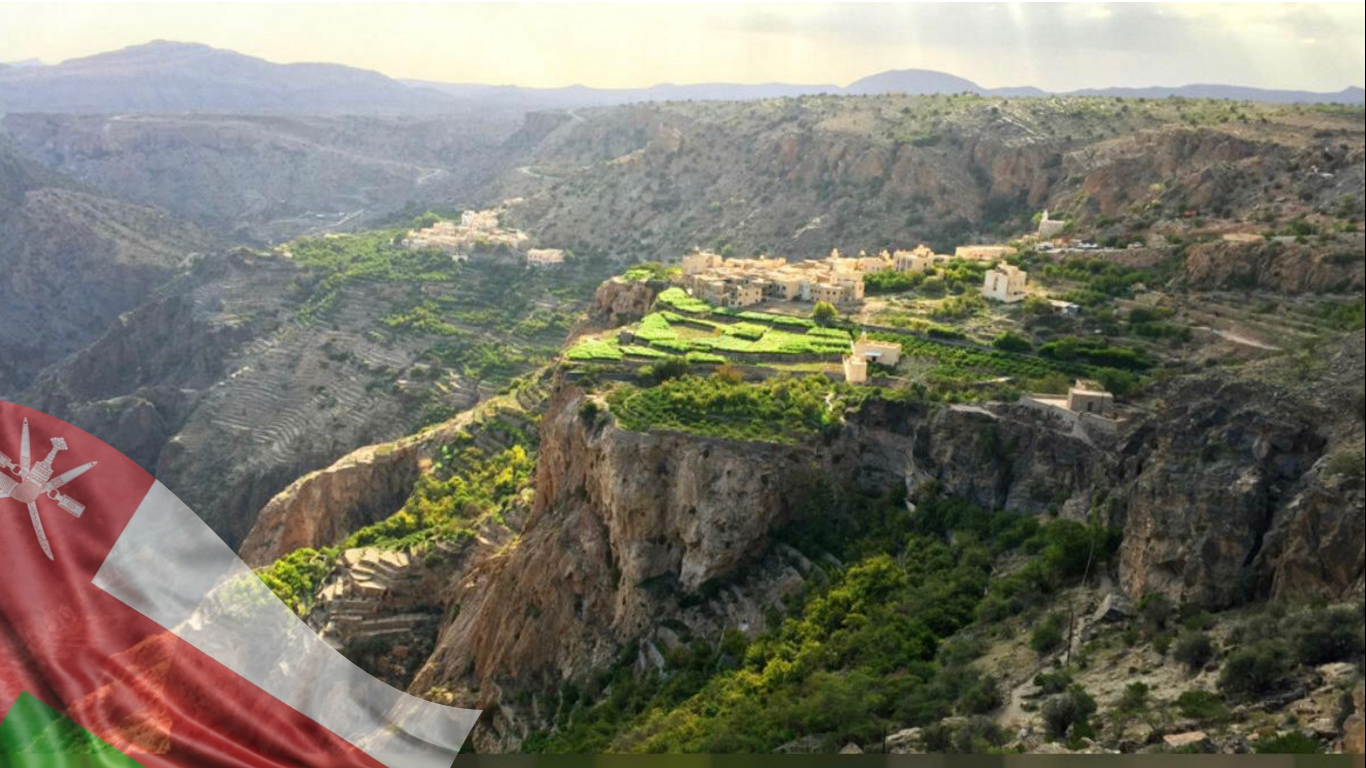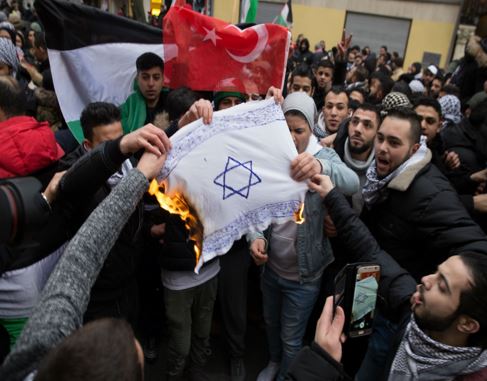In an interview in December 1981 former Libyan leader Mu‘ammar al-Qaddāfī said: “we are absolutely against tourism [terrorism] and these tourist [terrorist] groups in Europe.” Thought he surely meant terrorists, his words rather appear tourist, and this slight, yet significant mistake echo well in many ears, not at all far from Libya. Who would have guessed than that like many of his remarks, like stating in his Green Book, that a man is a man and a woman is a woman, one day will not be funny, but disgracefully accurate. Of course, normally it would be rather funny if someone would fail to comprehend the distinction between the two words. But there are times, when this line is thinner than anyone would suppose.
Since 14 June Tunisia was once again turned upside down by a scandal that might not only seal the faith of the government before the general elections in November, but with its consequences might bring much unwanted international attention. And the case is even worse since the country will witness presidential elections as well in October, in which the ailing 92 years old Muḥammad Qā’id as-Sibsī will surely not run. The scandal was actually caused by a Lebanese tv station, al-Mayadeen, which aired a short report on tourists in Tunisia. Tourists, which many, especially many protesters now, regard much rather as terrorists. Not as much because these were Israeli tourists, but because their behavior, mentality and the implications in the report were very threatening for many. Since the report was not made by al-Mayadeen, but by Israeli Channel 12, and the Lebanese channel only translated and aired it.
The implications are all very embarrassing, since now protesters want the the removal of the Minister of Tourism, Rene Ṭrabulsī, who was not long ago a celebrated figure in the government as the first Jewish minister for decades. Now the protests against him and his possible removal might bring the well-known antisemitism charges against the country, which desperately needs to prove itself as a safe heaven for tourists and as a successful example of the so called “Arab Spring”. But Ṭrabulsī’s stay is just as problematic, as he seriously downplayed the case, even accusing al-Mayadeen of fabricating or falsifying things in the report. As the case progressed not only more and more people got to see the report, causing massive outrage not only in Tunisia, but all over the Arab world, but more and more details got out, that this is acutely far from being the first time the North-African country welcomed tourist groups from Israel, and this is anything but ordinary tourism, or something the government would haven’t known about it.
The bomb also blew in a very inconvenient time, as the Bahrain Economic Summit is closing in fast, which will put the “deal of the century” on the table, the naturalization of Israel. Tunisia was one of the few Arab countries, which simply tried to downplay the story not expressing any strong opinion about it. Which supposedly meant an attempt to circumvent public opinion and just go along with the deal to prevent Western condemnation. Because right now Tunisia is in desperate need of Western, mostly European support.
But why a tourist group caused outrage, especially with that magnitude? Why is a report so significant? What it revealed and after all, where is Tunisia heading with all this? That is our topic of the week.
Some tourists
The report, which caused all this turmoil is indeed something extraordinarily. Only twelve minutes long, but it is full of incredible scenes. It shows how Jewish tourists from Israel visit the local community in the island of Ğarba[1] for a religious festival, but here we are clearly not talking about dozens, but hundreds of pilgrims. Only the video, made by one of the organizers, who happened to be a journalist for the Israeli Channel 12, follows one bus and its tourists. It clearly shows how the trips was well-organized and local security forces put great care to safeguard them. In the festivity in Ğarba the journalist encounters Minister Ṭrabulsī, who came to meet them there, but became most uncomfortable, when he realized that he talks to an Israeli crew. Which the lady confesses with complete honesty. During the trip the tourists vocally cheer wherever they go, not making a secret of their presence, nor their nationality, while most of them are from Tunisia itself, from where they immigrated as children in the ‘70s. In the bus they openly cheer and praise the Israeli army, and during their trip to most parts of the country they even visit in Sīdī Bū Sa‘īd the house, where once Halīl al-Wazīr lived and got killed. Al-Wazīr, more known by his nome de guerre, Abū Ğihād was a Palestinian from Ramla, from where his family was chased away in 1948. He was an early founder of PLO and a long time ally of Yāsir ‘Arafāt, who after an eventful life moved to Tunisia in early ‘80s. It was here, where he was massacred in 1988 by and Israeli commando, which was the second big atrocity between the two countries. In 1985 the Israeli Air Force carried out an raid against a PLO compound near Tunis killing some 60 people and wounding around another hundred. Operation Wooden Leg, as it was called, was so scandalous that time that the UNSC adopted Resolution 573 condemning Israel and determining Tunisian right for reparations. These two attacks were severe slaps not only on Tunisian sovereignty, but to the whole Arab community, since at that time, between 1979 and 1989 Tunisia was the host country of the Arab League Secretariat. In this light the visit to Abū Ğihād’s former house, and with the assistance of local authorities is nothing less than scandalous and not understandably regarded by many as a form of atrocity. Not any less scandalous was the behavior of these tourists in Tunis itself, where many visited their or their families former homes knocking on doors and in some occasions even entering these premises. They regarded these houses as their own in a number of instances. So obviously, they were not only not afraid to visit an Arab country, which officially does not even acknowledges their state, but they were not at all discreet about the trip and many openly said that was their second or third visit.
The report caused massive demonstrations by the 14 June 2019, but authorities tried to downplay the visit as if they had no serious prior knowledge about it. Minister Ṭrabulsī himself, though not naming al-Mayadeen commented the report as fabrication, since much of the translations were misinterpreted.[2] So accepting this explanation, though the number of pilgrims in Ğarba somewhat contradict this supposition, it might be interpreted that only one group somewhat overstepped the limits of hospitality. But authorities had no knowledge of their Israeli identity and they were only supposed to be Jewish pilgrims visiting the local community for a religious festivity from European diasporas. Therefore they would count as Europeans, not Israelis, who visited Tunisia from religious purposes. Which would be an acceptable explanation. Since the main problem is not the Jewish identity of these visitors, but their Israeli citizenship, which the state of Tunisia does not acknowledge.
Following the scandal, however, somewhat to defend their own standing, al-Mayadeen crew presented another report. This proved perfectly well that the group, like many others were welcomed by the Minister of Tourism personally – who might had a lot to do with the arranged security – and both in the hotel and in the airport these tourist were registered with Israeli passports. The second report also revealed that the organizer of the trip had arranged many similar ones and had friendly ties with Minister Ṭrabulsī, whom he regarded as a close friend.
In this context the visit and the original footage itself is less of the matter, but all what can be seen on it raises serious questions about the standing of Tunisian government in the Arab community. The timing is also very alarming only few months after the Tunis Arab League Summit and before the impending Bahrain summit, where major regional changes can be expected.
Jew or Israelis
To better understand the magnitude of the matter few things, however, has to be clarified. Was the problem caused by Jews being in an Arab country and should it be understood as yet another incident in the Arab-Jewish, or Arab-Israeli struggle? The matter is not that at all.
Though in the West it is generally perceived that all Jews and Arabs/Muslims are in an eternal conflict with each other driven by religious fanaticism, that idea is almost incomprehensible in the Middle East. Especially on religious grounds. Islam itself does not view itself as a completely new religion detached from Judaism and Christianity, but much rather as a completion of the original journey. Islam views Prophet Muḥammad as only the last one in the chain of prophets, who were all sent by God, among them Abraham, Moses and even Jesus. Islam separates Judaism and Christianity from other religions, as parts of the same story, only in incomplete forms. That is perfectly symbolized on top of most mosques with three balls, representing the three conclusive religious only getting more perfect.
After WWII most Middle Eastern political ideologies were keen to emphasize this distinction. The religious, Islamic revivalist movements always pointed out that Islam cannot renounce Judaism and Jews as they are protected by the Qurān. Therefore renouncing them would mean renunciation a part of Islam. Secular ideologies tried to prove themselves progressive and right because that they tried to step over the traditional social boundaries between the different Islamic denominations themself and between them and other faiths, regarding religion as a personal matter. Therefore under no circumstances can be the basis of any discrimination. Most Middle Eastern countries did indeed gave prominence to Islam, but in social matters other faiths were always promoted to be protected, the Gulf being somewhat the exception. For different reasons, but the two main currents both renounced the Middle Eastern conflict to be based on religious grounds. Much rather the problem emanated from the state of Israel, which Muslim ideologies viewed as aggression on Muslim, while secular ones as deprivation of Arabs from a part of their homeland.
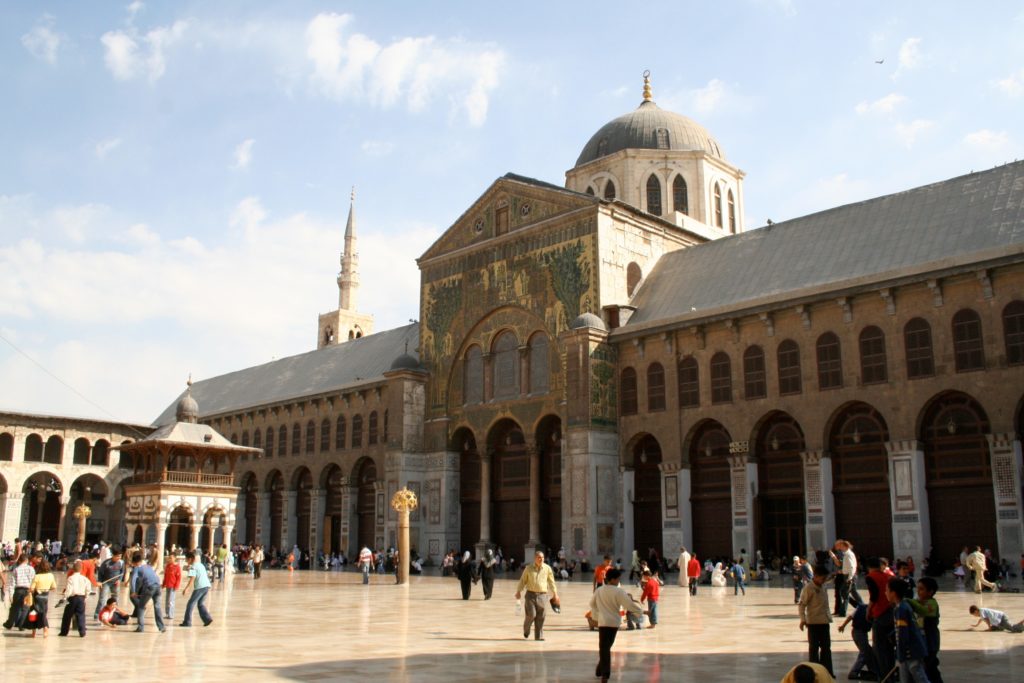
This might seem sugarcoating in the West, and this view is still promoted by the most aggressive Zionist circles, Jewish communities were still populous in most Arab countries when Israel was created in 1948 and continued to be more or less until the war in 1967, when Jerusalem became occupied.
That was especially true in North Africa. Between the Western and the Eastern part of the Arab world there is a huge difference in the popular mind towards the two other great religions for historical reasons. From Egypt to Iraq, in the East Christianity always remained significant and therefore there was a generally positive attitude towards it. But after the creation of Israel general sentiment towards the Jews rapidly became negative, as these states were the most affected by the wars with Israel. In North Africa, however, Christianity vaporized almost a century after Islam, and later on hatred was caused by the reconquista and the wars with Spain, Portugal and France later on. The expulsion of Muslims and Jews after the fall of Granada always stayed as negative reminder of the Christian powers. The East never had this experience, since even after the Crusaders Christians remained significant there, and they preserved their distinct Arabized, eastern culture. However, the majority of Muslim and Jews chased away from Spain found new homes in North Africa, where in time a sort of common understanding was formed. This was only enhanced by the flourishing trade, mostly salt, which was created by the new Jewish immigrants. In most North African countries mellaḥ[1], still means the Jewish quarters. In this context the idea, which seems superficial in the West makes sense. Since if the Christians of Egypt, Syria or Iraq stayed loyal to their Arab homelands and had little to do with the colonizing powers – at least the boundary never diminished -, the same could be true to the Jews in their lands. Especially that most of the Jews in Israel – at least in the ‘70s – came from Europe and America, not from the Middle East. And it should be noted that the popular myth that after 1967 Jews were chased away from the Arab countries – though verily there were examples, like in Iraq – is generally not true. The exodus was much more caused be the difference in living conditions, which was very much sponsored by Israel in need of new settlers. Yet many Jews chose to stay, especially in North Africa. Even in Damascus the old Jewish quarter close to Bāb Šarqī remained a ghost town, since the state never touched the property of the former owners.
So here the problem is not with the tourists being Jews. In Ğarba there still is a small, but well known and somewhat flourishing local Jewish community. And their head was since 1985 Perez Ṭrabulsī, father of the current Minister of Tourism. The long centuries for the Jews in North African surely was not always ideal, sometimes even very harsh, but they were very from the atrocities of the twentieth century.
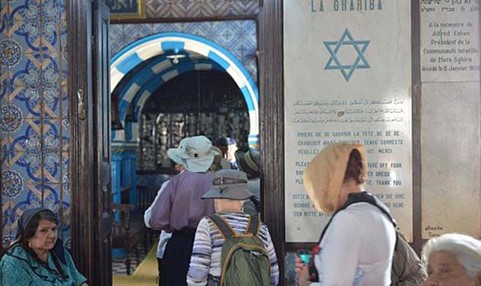
So it is Israel than
The core of the problem is exactly how North African Arab countries treat Israel, which is always the result of their general approach to the Arab East. Though the Palestinian cause had a major support in this part of the region as well, actually all five Maġrab states behaved completely different in this regard. Mauritania, which is the least concerned, was lead by Sīdī Aḥmad aṭ-Ṭāya‘ since the ‘80s and was closest to Algeria and Iraq. Yet after the Gulf war if shifted its policies and in 1999 became the third Arab country to formally establish ties with Israel and abandon the Palestinian matter. Since the coup in 2005 and the subsequent military rule Mauritania backtracked from this stance, but generally stays out of these matters. Morocco, which had the biggest and most influential Jewish community supported the Palestinian struggle, but had positive, though not official, ties with the Israelis. II. Ḥasan (1961-99) mediated many times in Arab-Israeli matters, but never made any doubt that his state’s stance is inherently tied to the Palestinian matter. Therefore Morocco only acknowledges a general peace plan. Since his time there were always doubts whether the kingdom would concede to a partial peace process, especially for its close ties to Saudi Arabia, but given the recent rift between Rabat and the Gulf Morocco is still an ambiguous player. It should be noted that in April 2018 a similar scandal broke out, when it was revealed the Israel operates military training centers in Morocco trying to recruit local agents. And the ringleaders were operating under the cover of journalist. The official inquiry still goes on, but the matter was pretty much swept under the rug. Also notable that this matter was also revealed by al-Mayadeen. Algeria was always the loudest and most staunch supporter of the Palestinian case, and most struggles against Israel, but always tactically refrained to host PLO and similar groups officially or in significant quantity. Libya was absolutely the same under al-Qaddāfī, who even ousted Palestinian groups after Oslo and in this sense was firmer supporter of Palestine than the Palestinians themselves. However, since his downfall the country somewhat broke apart and the competing governments became the practical pawns of their outer regional and Western supporters. Therefore whatever happens in Bahrain, Libyan position will depend on whether the Saudi-Emirati-Egyptian-French or the Turkish-Qatari-Italian supported groups will be in charge at that time. But practically speaking, Libya is out of the picture.
Tunisia stands in the middle of this regional equation. Tunis is shifting back and forth between two major camps. Since the Libyan war had its toll on Tunisian security, which was very clear not only by the unprecedented terrorist attack in recent years, but also in regular clashes along the border, Tunisia relies on Algerian support and surely would not dare to upset Algiers. However, with the recent uncertainties in Algeria now, that tie weakens now. Much of the Tunisian economy relies on the tourism, mostly from Europe, while traditional political ties with it were always strong. These now noticeably push Tunisia for a less confrontative stance towards Israel, if not directly for acceptance. That is why Tunisia matters now, since if in Bahrain now Tunis would go along the American peace plan and accept Israel formally, than Morocco and Mauritania wouldn’t raise concerns – if they weren’t to follow right away -, Libya wouldn’t matter, and now even Algeria would not have the capability to stop the current. Since the Algerian Chief of Staff, Qā’id Ṣāliḥ still holding on to power only managed to hold out now by Emirati support. And where Abū Zabī stands in the “deal of the century” is not a secret at all.
Would they really do it?
The level of Tunisian-Israeli ties are in fact way beyond what the general public knows about, even in Tunisia. They are rapidly growing in recent years, and that is exactly what made so many people nervous now. Since this is not understood as an isolated case, but rather a very blatant move in a menacing chain. And while this goes far beyond, tourism is one of the most crucial questions. Since that is not only a financial, but also a security issue. Tourism not only makes up 8-10% of the GDP but also provides almost fifth of the employment. It fell rapidly in 2011 and only recovering, again in 2015. After 2011 with uncertainties in region there was a general distrust for Arab countries, which hit hit Tunisia hard, especially that the local branch of the Brotherhood, the an-Nahḍa Party took over. Which was indeed incapable to solve most of the original economic problems, which caused the downfall of the previous system, but was deeply involved in the support of terrorist groups from Libya to Syria. At that time head of the party, Rāšid al-Ġannūšī tried to reassure Jews in the country that no harm would come to them by a Islamist government. He still applies to this sort

support, as in March 2019, running up the elections later this year he toured Ğarba and met with leading rabbis. The an-Nahḍa never get over the political crisis and then major scandals broke out after revelations of government involvement in support for militants in Syria, and political assassinations like that of Šukrī bil-‘Ayd, and Muḥammad Ibrāhīmī both in 2013. That lead to a deadlock and the to head the new government a technocrat was chosen to lead the country until the next elections. That was Mahdī al-Ğuma‘a who barely lead the country for a year until the new government was formed after the elections in October 2014. In that the an-Nahḍa slightly lost to its major secular rival, Nidā’ Tūnis Party, but neither was strong enough to form a government. The result was Nidā’ Tūnis dominated all-party unity government. Nidā’ Tūnis only managed to achieve success by presenting an alternative to the Brotherhood. Though they managed to prove economic results, like in tourism, which is about to reach a new record in 2019, their future is still precarious. That is why this unity government tries its best to keep the economy running and hold on to Western support. And in this context the semi-official rapprochement with Israel is of special interest.
Is the arrival of Israeli tourists is something new? Actually not at all. This scandal is far from being the first one. It was still Mahdī al-Ğuma‘a’s premiership when exactly the same case broke out like the one now. Israeli fanatical portals praised him for allegedly saying he allowed Israeli tourists into the county. By May 2014 the Parliament vehemently accounted Minister of Tourism Āmāl Karbūl – a German educated businesswoman -, and Deputy Interior in change of National Security, Riḍā Safar for issuing visas to Israelis. The result was a closed hearing, which practically brushed the matter aside saying the country needs tourist regardless of their origin. Which is a significant point, since it is very doubtful how much barely 9 million Israelis – part of them Palestinians, who can’t even travel – would make up such a market, which would worth such political scrutiny. But as Deputy Chairman of the Tunisian Workers Union, Bū ‘Alī l-Mubārakī in his recent interview on 14 June 2019 to al-Mayadeen pointed out, tourism is just one segment of the warming ties, but in recent years growing number of Israelis products appeared in the Tunisian markets. By U.N. statistics even by
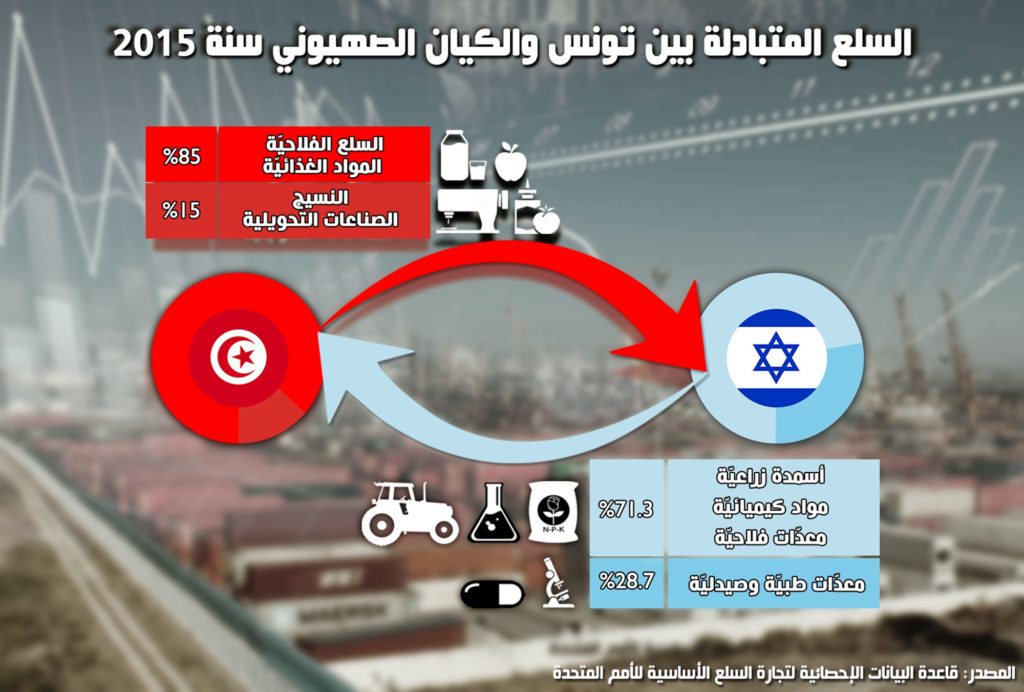
2015 there was significant direct trade between the two countries, where mostly Tunisian agricultural products were sold to Israel, while in return mostly chemical products, fertilizers and pharmaceuticals were imported. Which makes a substantial direct monetary link.
By various sources that all is actually not new, but the original link was still created by former President Bin ‘Alī. After Oslo the two states mutually opened economic offices – unofficial embassies – at each other, and thought the relation halted in 2000, it slowly started again by Bin ‘Alī inviting tourists and investments from Israel. That is the tie which briefly seemed jeopardized, but never harmed after 2011. And since the new governments ever since 2011 – always having Islamists in it – were always vulnerable to accusations of fanaticism, yet dependent on tourism as Western investors’ good will always practiced a form of charm politics. Winning sympathy with grand gestures. Which still works, as recently not any less, than Madeline Albright praised the allegedly perfect democracy in Tunisia. When the current PM reshuffled his government in November 2018, it was probably part of this charm politics why the first Jewish minister since the ‘50s, Rene Ṭrabulsī was elected in charge of Tourism. In one of his first interviews given to i24 News[4] Ṭrabulsī clearly stated that there should be no restrictions and it is admitted that regular pilgrimages are organized by him from Israel. The move is viewed by many as a prelude to the naturalization of Israel, and in the interview the footages can be seen from same trip, which caused the scandal now.
All that gives out a pattern that ties which were established by Bin ‘Alī in the ‘90s are still going on, and getting stronger ever since with the local Jewish community not only has growing influence in the governments, but also stronger ties with Israel. The government might act surprised now, but in fact what is hidden from even most Tunisians is that these ties growing fast.
The weight of the matter
Apart from the blatant, many times arrogant approaches of the tourists in the footage, which now caused the scandal – which is obviously not new at all – there are two major concerns for Tunisians now by this event. The first, less direct is moral. If the government has improving ties with Israel the state, concealed as tourism or favors to the local Jewish community, than it might even go along with the “deal of the century” in Bahrain. And if there are more like this, than the Arabic tragedy that started in 1948 might even become official as defeat, and that might even seal the faith of the Arab League. Plain and simple, after 70 years Israel prevailed and the Arab nation failed. And there are unmistakable remarks to that in the footage. After the what happened to it in the ‘80s, for Tunisia that is most humiliating. But the second threat emanating from the video report is clear behavior of these Israelis regarding their former possessions as their own. In 2015 both Portugal and Spain passed laws to give citizenship to all Jews – not Muslims or Arabs – who where banished after reconquista. Their numbers by 2019 reached some 10 thousand people. The worry is, as al-Mubārakī pointed out that within the same gesture politics to the West the government might pass similar laws extending them even to Israelis, which after the ‘80s is an understandable nightmare for many Tunisians. And that might even include reparations to be payed or property to be reclaimed, even though this community was not chased away.
So the matter here is in fact much bigger than such a scandalous tourist group, which couldn’t control itself. But by many Tunisia, after decades of supporting the Palestinian cause, seems to be heading the “deal of the century”, and the unstable political class facilitating it. In this matter it is more curious why was the Israeli station so blatant to publish this footage, which they could be sure to cause outrage sooner or later, but ahead of the Bahrain summit, they might had their own reason. Or, it is jut a coincidence.
[1] The island itself was not built to be a tourist center, like the area around Monastir, but nonetheless became the center of a more luxurious category of tourism. In this regard it is like Hurgada in Egypt, which is just as well detached from the other parts of the country.
[2] It should be noted that al-Mayadeen aired the original footage with original sound, only translated it in subscription. Therefore anyone could prove the translation wrong, but that hasn’t happened yet. The most controversial parts, however, are clearly visible and need no translation.
[3] In Arabic meaning the place of salt, or salt market.
[4] An Israeli 24/7 international news channel founded in 2017 by Patrick Darāḥī, a Moroccan Jew.

